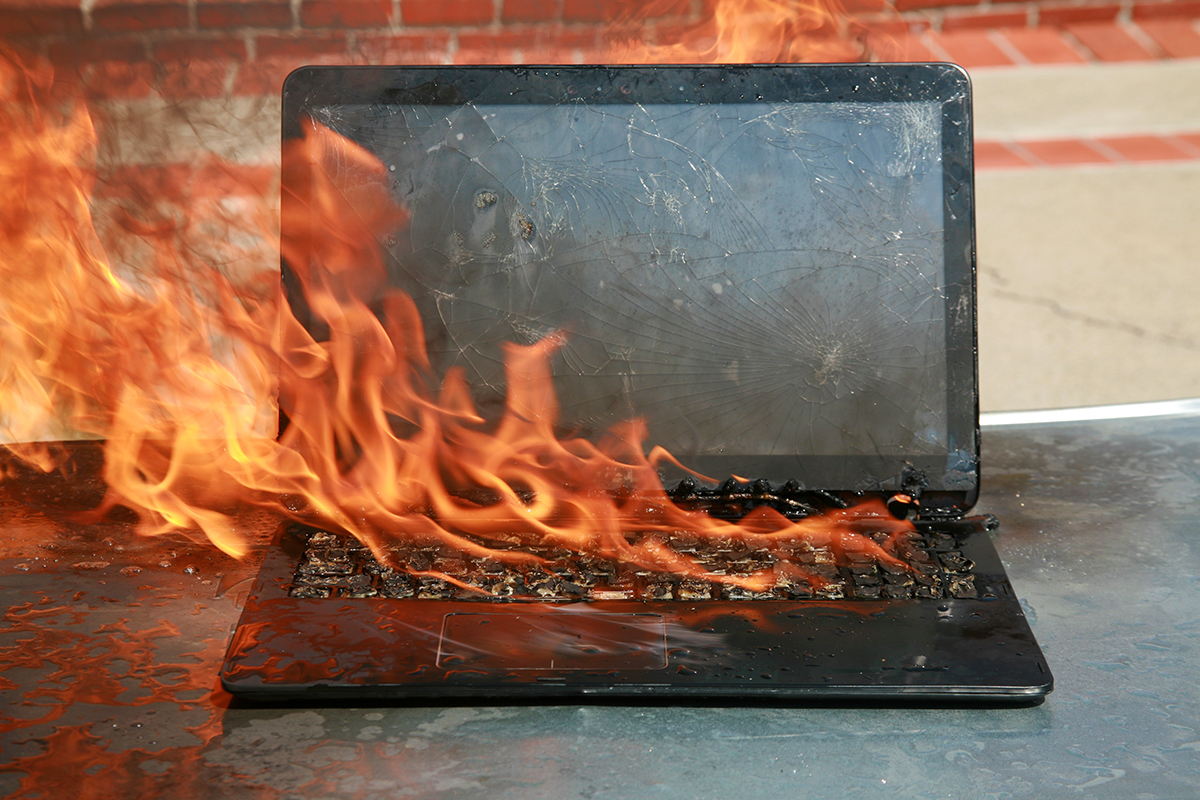
During Fire Prevention Safety Week, recyclers, regulators and companies spotlight new suppression systems, state policy and public campaigns to cut fire risks. | Mikele Dray / Shutterstock
Fire Prevention Safety Week, running from October 5 to 11, is arriving as recycling operators, policymakers and industry suppliers intensify efforts to confront the rising threat of lithium-ion battery fires in the waste stream.
In South Carolina, Redwood Materials and the Electrical Safety Foundation International have launched a statewide campaign with the state Department of Environmental Services to raise public awareness about safe battery disposal. The initiative will provide more than 40 drop-off sites across the state and connect to hundreds more nationwide. Organizers say the goal is to prevent fires in recycling facilities and landfills, while returning critical minerals to domestic supply chains for new US battery production.
Lithium-ion cells power everything from phones and laptops to power tools and vehicles, yet many consumers remain unaware of how to handle them at the end of their life. When discarded in curbside bins, they can spark quickly spreading fires in trucks, transfer stations and material recovery facilities.
Companies are responding with multiple layers of protection. Waste Pro, one of the largest privately held collection and disposal firms in the country, announced last month that it has begun outfitting equipment with AFEX Fire Suppression Systems. The North Carolina-based manufacturer supplies rugged, US-made systems designed for heavy-duty mobile equipment.
Joseph Leamont Jr., Waste Pro’s corporate director of post collections fleet and maintenance, said the systems already proved their value after extinguishing an engine fire before the operator realized what had happened. The in-cab alarm sounded, the system discharged automatically and the operator exited safely. With only minor damage, the machine returned to service within days.
“Fire suppression is another layer of protection to make sure our employees make it home safely each day,” Leamont said in a company statement. He added that the investment demonstrates Waste Pro’s commitment to workers and communities.
At the facility level, Fire Rover systems are being adopted to detect and suppress fires before they spread. Other technology providers, including Visia, are developing optical sorting solutions to identify and remove batteries from the stream before they cause damage.
The need for layered approaches is growing, in part because fires have implications far beyond immediate safety hazards. Industry executives note that insurers have become increasingly reluctant to cover recycling and disposal sites after repeated fire losses. Premiums have climbed sharply and in some cases coverage has become unavailable, jeopardizing operating permits that require active insurance. Suppression investments can help operators secure policies, but costs are rising and are often passed along to ratepayers.
Policy makers are also attempting to address the issue upstream through extended producer responsibility for batteries. Oregon legislators introduced a bill earlier this year that would require producers of batteries and battery-containing products to fund collection and recycling programs, although embedded batteries remain outside its scope. Lawmakers plan to reintroduce the measure in the short session in February, 2026.
New Jersey has already passed a law focused on electric vehicle propulsion batteries, the first of its kind in the country. Other states are exploring frameworks that initially cover portable batteries before expanding to embedded products. Industry advocates say piecemeal adoption creates uncertainty, but note that even partial programs can reduce fire risks and recover critical materials.
Taken together, the mix of public education, operator investment, technology deployment and legislative activity underscores how central fire prevention has become to recycling operations. Data show that reported incidents continue to rise, highlighting the ongoing challenges the sector faces.
Fire Prevention Safety Week offers a timely reminder, said campaign organizers in South Carolina, that safe handling of batteries begins with consumers. By diverting them from curbside collection and into dedicated recycling channels, officials hope to cut risks for workers, protect equipment and keep valuable resources in circulation.

